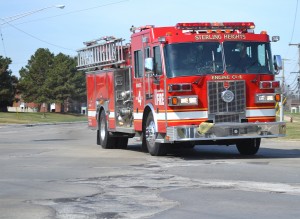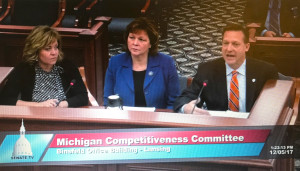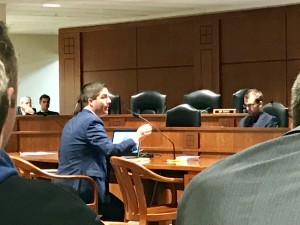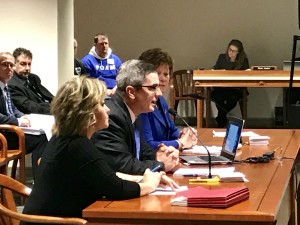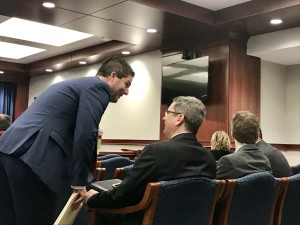Michigan’s roads are bad. Obvious, right? But the poor condition of our roads is a symptom of a much larger, less obvious problem – that Michigan’s system for funding our communities is broken. This broken system is what the Michigan Municipal League and our partner organizations are trying to fix through our ongoing SaveMICity initiative (savemicity.org).
This work is starting to see some success.
Gov. Rick Snyder and the state legislature – with the behind-the-scenes urging of the Michigan Municipal League and our SaveMICity partners – took some decent steps recently to address the road issue. Much work still needs to be done, to fix the roads and the broken system, but nonetheless the League was recently successful in getting $150 million in additional road funding dollars for Michigan communities. Our roads still have a long way to go, but this additional funding on top of previously distributed money for roads, is good news.
We’ve broken it down for you by community in a chart available on our SaveMICity website here. View the full pdf here. League CEO and Executive Director Dan Gilmartin sent a personal letter to more than 800 League members last week explaining the increase road funding money.
The A to Z list the League put together shows how much in additional road funding dollars every community in Michigan is receiving in 2018 and 2019. For example, in the small 605-person village of Addison in the southeast corner of the state the amount is $21,180 and at the end of the list is Zilwaukee collecting $50,542.
Here’s a breakdown of some of what some of our largest cities are receiving on top of previously planned road dollars:
- Detroit – $20,782,871
- Grand Rapids – $5,242,118
- Warren – $3,301,622
- Sterling Heights – $2,896,283
- Lansing – $3,252,376
- Ann Arbor – $2,915,231
- Flint – $3,275,321
- Dearborn – $2,513,955
- Livonia – $2,451,906
- Westland – $1,840,353
- View the full list of all 533 Michigan communities here.
“Funding like this doesn’t find its way into municipal coffers easily. It takes a lot of behind-the-scenes work by our staff and others. Michigan’s infrastructure system is still seriously underfunded, but we are pleased that the Legislature is paying attention and dedicating additional revenue as it becomes available,” Gilmartin stated in the letter to League members. “I’m very proud of our League staff and how they fight every day on behalf of you—our members
Here is what the League helped secure for our members, on top of funds previously distributed for road funding:
- $300 million in additional, one-time funding for the 2018-19 budget. Of this amount, $65.4 million will go specifically to city and village road budgets.
- $150 million of new money is expected due to the road funding package previously approved. This increase, combined with growth in gas tax and registration fees, will result in an additional $43.4 million for cities and villages.
- $175 million for roads for the current construction season. This money came from leftover general fund dollars in the 2017-18 state budget. Of this amount, $38.1 million is going to cities and villages for the current orange-barrel season.
Combined, that’s nearly an additional $150 million for road work for Michigan communities this year and next!
The League and our SaveMICity partners will continue to work on the road funding issue and on solutions to fixing the broken municipal finance system. But we still need your help. Join us at SaveMICity.org.
Posted by Matt Bach, director of communications for the Michigan Municipal League. He can be reached at mbach@mml.org.

